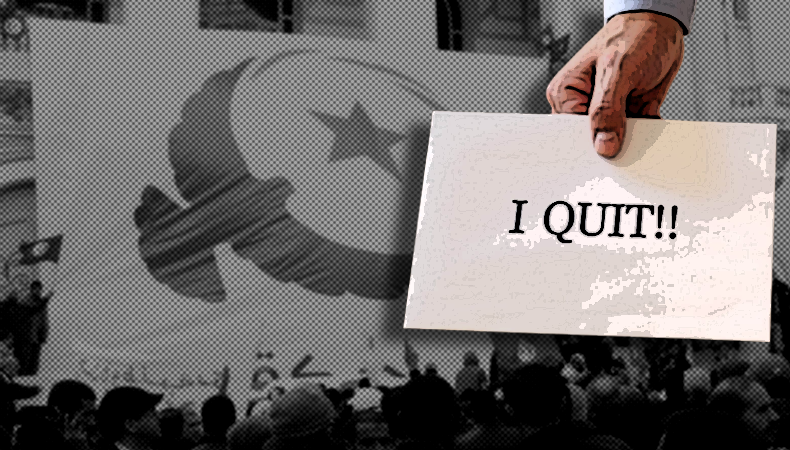Saied’s decisions force 113 Ennahda party officials to resign over split from leadership

113 senior officials of Tunisia’s Ennahda party have resigned on Saturday over ‘failed’ leadership that could not stand against President Kais Saied decisions of suspending the Parliament. The officials of the largest political party of Tunisia who quit include eight lawmakers and several former ministers.
The main reason cited for resignation was that Ennahda party was divided in its response towards Saied’s decision of sacking the prime minister and his government, and suspending the Parliament – an act largely labelled as ‘coup’. The officials said in a joint statement that the reason for their mass act of quitting was the wrong choices made by Ennahda’s leadership that failed to present a common front to oppose Kais Saied’s decisions.
The resignations include that of former Minister of Health Abdellatif Mekki. Taking on to Facebook, Mekki said, “I feel deeply sad.I feel the pain of separation but I have no choice after I tried for a long time, especially in recent months… I take responsibility for the decision that I made for my country.”
Turmoil within Ennahda Party
After Saied’s highly criticized move of dissolving the Parliament two months ago, some officials of the party demanded resignation of Ennahda Party leader and Speaker of the Parliament, Rached Ghannouchi for party’s response to the ‘coup’ and amalgamated choices it made since the 2019 elections.
In efforts to stem down growing protests against him, Ghannouchi dismissed the executive committee of party. Statements by the 113 officials on Saturday point-blank blamed Ghannouchi for making “inappropriate alliances” with other movements in Tunisia that deeply “undermined Ennahda’s credibility”. Responding to this, Ghannouchi called for ‘peaceful struggle’ against the crisis. He said, “There is no longer any alternative to struggle, naturally a peaceful struggle.”
Ennahda Party had emerged as the strongest party in Tunisia back in 2011 civic unrest that led to toppling of long time autocratic leader president Zine El Abidine Ben Ali. But since 2014 the party lost its hold in parliament with plummeting of vote share. Furthermore, party has seen rifts widening with young leaders calling for a change of scene with replacements of top officials, including Ghannouchi.




